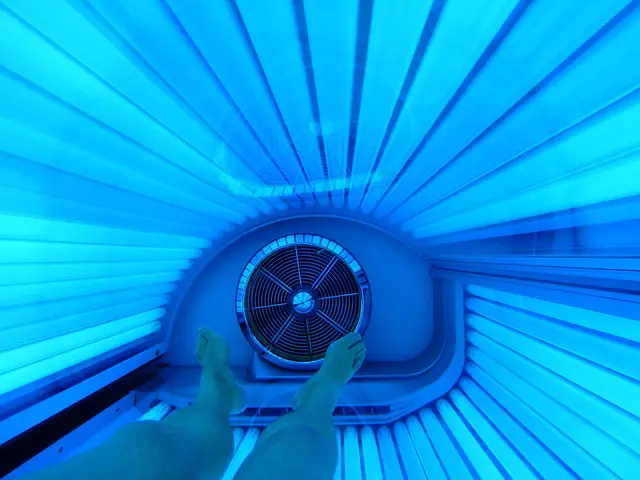Water is an essential part of our lives, and it’s crucial to have access to clean, safe drinking water. However, tap water can be contaminated with harmful chemicals and bacteria, making it unsafe for consumption. Fortunately, there are different types of water filtration systems available for homeowners to use. In this article, we’ll explore four different types of water filtration systems, including their advantages and disadvantages.
The best water filtration systems for homes are activated carbon filters as they offer the most comprehensive solution at an affordable price with easy installation. Reverse-Osmosis and Ultraviolet filtration both have their advantages but lack the user-friendliness & comprehensive solution that carbon provides.

Best All-Round Option: Activated Carbon Filters
Activated carbon filters are one of the most common types of water filtration systems for home use. These filters work by using a porous material to trap impurities, such as chlorine, sediment, and volatile organic compounds (VOCs). The activated carbon removes these impurities by adsorption, which is a process where the impurities stick to the surface of the carbon.
Advantages:
- Effectively removes bad taste and odour from water.
- Relatively affordable and easy to install.
- Does not remove beneficial minerals from the water.
- Very affordable and easily available.
Disadvantages:
- Not effective at removing minerals, bacteria, and viruses from water.
- Requires frequent replacement of the filter.
If you are interested in reading more about the inner workings of carbon filters, how effective they are and even how to make them, I recommend the following articles for further reading on the topic:
How Long Does It Take For Charcoal To Filter Water?

High-Performance Options: Reverse Osmosis Filters
Reverse osmosis filters are another popular type of water filtration system. This system uses a semi-permeable membrane to remove impurities from the water. The water is forced through the membrane, which traps impurities, such as minerals, heavy metals, bacteria, and viruses.
Advantages:
- Removes a wide range of impurities from water, including heavy metals and bacteria.
- Does not require electricity to operate.
- Long-lasting and low-maintenance.
Disadvantages:
- Expensive to install and maintain.
- Wastes water during the filtration process.
- Removes beneficial minerals from the water.
If you are interested in reading an in-depth article on the various types of reverse osmosis filters for the home, including the pre and post-filtration setups, I wrote a comprehensive article on the topic that I encourage you to read: How Many Stages Are There In Reverse Osmosis? It Depends!
Best Antibacterial Option: Ultraviolet Filters

Ultraviolet filters use UV light to kill bacteria and viruses in the water. This type of filter is typically used in combination with another type of filter, such as an activated carbon filter, to remove impurities before the UV light is applied.
Advantages:
- Kills bacteria and viruses in the water.
- Does not require chemicals to operate.
- Low maintenance and long-lasting.
Disadvantages:
- Does not remove impurities from the water.
- Does not remove minerals from the water.
- Requires electricity to operate.
If you are interested in reading more about ultraviolet filtration and how it works, I encourage you to read my comprehensive article on the topic: How Does UV Water Purification Work? A Simple Explanation
Reduce Water Hardness: Ion Exchange Filters
More commonly known as water softeners, ion exchange filters are designed to remove minerals, such as calcium and magnesium, from the water. These filters use a resin to exchange ions, which results in softer water.
Advantages:
- Improves the taste of water.
- Reduces mineral buildup in pipes and appliances.
- Does not require electricity to operate.
Disadvantages:
- Does not remove impurities from the water.
- Requires frequent replacement of the resin.
- Increases sodium content in the water.
If you are curious about water softeners and the potential advantages and disadvantages of soft water, I encourage you to read the following articles on the topic:
Advantages and Disadvantages of Soft Water
Do Water Softeners Kill Bacteria? A Brief Guide

Summary
In summary, there are different types of water filtration systems available for homeowners to choose from. Each type of filter has its own advantages and disadvantages, and it’s essential to select the best one based on your specific needs. Activated carbon filters are affordable and effective at removing bad taste and odour from water, while reverse osmosis filters are more expensive but remove a wide range of impurities. Ultraviolet filters are extremely effective at killing bacteria although will have a limited effect on taste & smell. Water softeners are perfect for harsh hard water that makes washing dishes and showers difficult although will do little to improve drinking water quality.
References:
“Activated Carbon Filters.” Water Quality Association. https://www.wqa.org/learn-about-water/common-contaminants/activated-carbon-filters
“Reverse Osmosis.” Water Quality Association. https://www.wqa.org/learn-about-water/common-contaminants/reverse-osmosis
“Ultraviolet Disinfection.” Water Quality Association. https://www.wqa.org/learn-about-water/common-contaminants/ultraviolet-disinfection
“Ion Exchange.” Water Quality Association. https://www.wqa.org/learn-about-water/common-contaminants/ion-exchange


